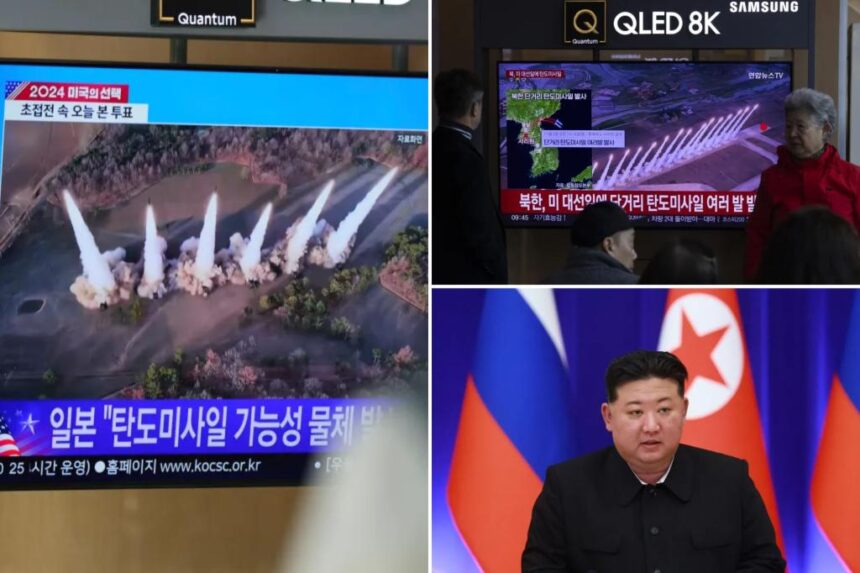North Korea conducted a series of missile launches into the sea just hours before the U.S. presidential election, causing alarm among its neighboring countries. Japanese Defense Minister Gen Nakatani reported that at least seven ballistic missiles were fired by North Korea, reaching distances of up to 400 kilometers and altitudes of 100 kilometers before landing in the waters between the Korean Peninsula and Japan.
The provocative actions by North Korea have raised concerns about the peace and security of the region, with South Korea also detecting multiple missile launches. The missiles launched by North Korea have the capability to target key facilities in South Korea, including U.S. military bases in the area.
These missile launches come shortly after North Korean leader Kim Jong Un oversaw a test of the country’s newest intercontinental ballistic missile designed to reach the U.S. mainland. In response, the United States conducted a trilateral drill with South Korea and Japan involving a long-range B-1B bomber as a show of force.
There are speculations that North Korea may be ramping up its military displays around the U.S. election to gain attention from Washington. South Korea’s military intelligence agency has also suggested that North Korea may be preparing for its seventh nuclear test.
The escalating tensions between North Korea and its neighbors have raised concerns about the country’s nuclear ambitions. Experts believe that North Korea is seeking to leverage its nuclear arsenal for concessions, especially after the election of a new U.S. president.
There are contrasting views on which U.S. presidential candidate North Korea would prefer, with some speculating that Kim Jong Un may favor a win by Republican candidate Donald Trump due to their past diplomatic engagements. However, Democratic candidate Kamala Harris has expressed a more firm stance against dictators like Kim Jong Un.
The international community is closely monitoring North Korea’s nuclear and missile programs, as well as its reported involvement in supporting Russia’s war in Ukraine. Reports indicate that North Korean troops may be preparing to join the conflict in Ukraine, potentially marking their first large-scale participation in a conflict since the Korean War.
Amidst the growing nuclear threat posed by North Korea, South Korea, the United States, and Japan have been increasing their joint military exercises. North Korea has criticized these drills as preparations for an invasion, justifying its pursuit of nuclear weapons and missiles.
At a recent U.N. Security Council meeting, North Korea defended its nuclear and ICBM programs as responses to perceived threats from the United States. The U.S. has reiterated its concerns about North Korea’s expanding nuclear capabilities and called for transparency regarding the presence of North Korean troops in Russia.
The international community remains vigilant against North Korea’s nuclear provocations, recognizing the threat it poses to regional and global stability. Efforts to address North Korea’s nuclear ambitions and ensure peace in the region continue to be a top priority for world leaders.






